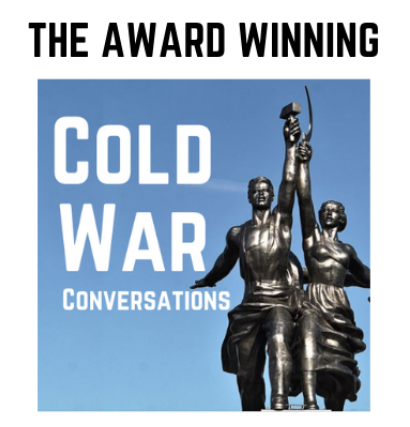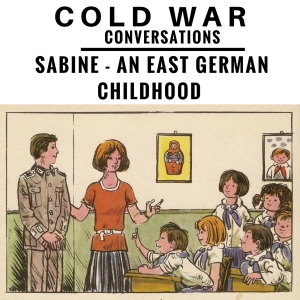Welcome to Episode 15 of Cold War Conversations.
Today we speak to Sabine who was 13 when the Wall opened.
We hear about her childhood in East Germany and gain great insight into life at the time, the pressures on her family and her first steps into West Berlin.
I found Sabine’s story very personal and moving detailing her experiences as her country disappeared almost overnight casting her family into an uncertain future as the safety net they were used to disappeared with it.
I am delighted to welcome Sabine to Cold War Conversations.
Spuk unterm Riesenrad
“I loved this series because I was obsessed with ghosts and ghost rides at fairs. Probably stems from that time my Dad took me to a Christmas market, to a Haunted House, and scarred me for life by handing me over to a man dressed as a skeleton for a laugh.
After watching that, I desperately wanted to go to that castle in the Harz mountains, Burg Falkenstein.
Spuk im Hochhaus:
I remember a friend of mine from school and I singing the theme song a lot and doing impersonations, because we were geeks like that.
There is also a series similar called Spuk von Draussen, which is proper creepy!”
They were all based on books by C.U. Wiesner which were hard to get, but my mother managed to get a copy for me – my pride and joy.
A documentary on exporting East German goods to the West:
Then this one struck me, although I am always wary about documentaries because they tend to be hyperbolic and sensationalist. Environmental protection wasn’t big in the GDR, even though it was preached to children. We had recycling programmes and were taught to respect and protect nature. At the same time, in the “Chemical Triangle” they left terrible environmental destruction. I remember being on a train going through, aptly named, Bitterfeld, and the chemical reek from outside was overpowering. There was pink and green foam on the rivers. Our rivers were massively polluted.
This is a bit of a funny one: There was an area in East Germany we called The Valley of the Clueless, which was down in the Dresden area. Reception was so bad that many of them would not be able to receive West German broadcasting, and I’m still convinced that is why so many of our statesmen had Saxon accents – because that area was easiest to “bring in line” because there were less Western influences. “




